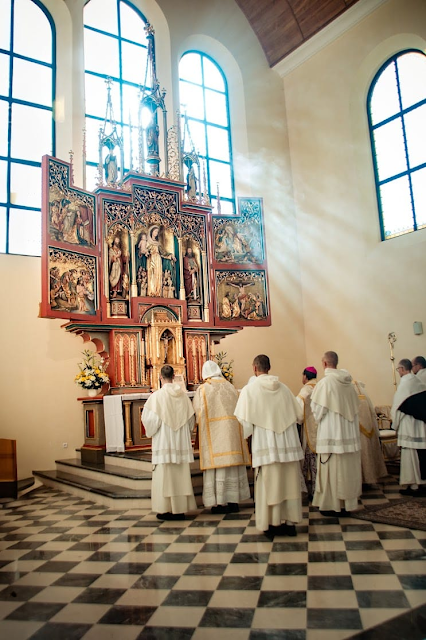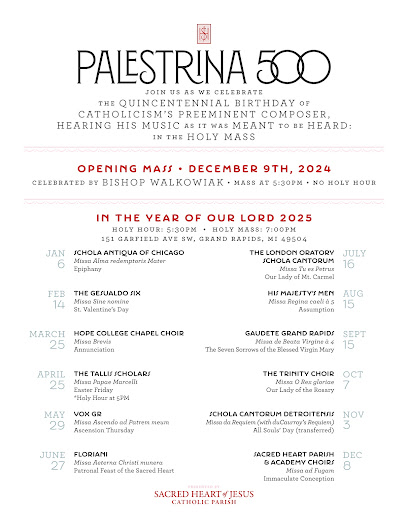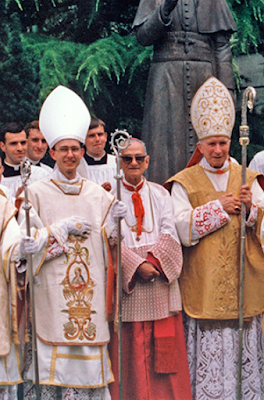(CNAd/InfoCatholic) Founded in 1970 by Archbishop Marcel Lefebvre, the Priestly Fraternity of St. Pius X claims to have more than 700 priests worldwide. The fraternity is present on all continents, although it has no canonical status recognized by the Holy See.
Pope Benedict XVI facilitated a rapprochement in 2009 by lifting the excommunication of four bishops ordained by Bishop Lefebvre in 1988. Pope Francis took another step in 2015 by granting priests of the fraternity the universal faculty to hear confessions. Since 2017, they can also celebrate marriages, provided they minister pastorally to the fraternity's faithful. Prior to this, the fraternity had always invoked a state of need in the Church to justify the administration of sacraments such as confession.
Pfluger assured Die Tagespost:
We do not want to separate ourselves from Rome, we belong to the Church. I don't understand how one can be in communion in a partial way. In my opinion, that confuses the faithful of the Catholic Church. I have never heard any Church representative or canonist explain what it is that we lack in order to be in full communion.
Regarding the recent death of Bishop Bernard Tissier de Mallerais, the German priest commented on possible new episcopal ordinations:
We currently have two auxiliary bishops. We cannot separate the question of bishops from our fundamental question about our existence.
The superior of the German Lefebvrist district explained that any decision on new episcopal ordinations will be deeply tied to negotiations with Rome, stressing the need for the church hierarchy to understand that the FSSPX does not seek to establish a ‘counter-hierarchy,’ but to ensure the continuity of its mission within the Church.
Pfluger justified the controversial episcopal ordinations of 1988, carried out by the fraternity's founder, Archbishop Marcel Lefebvre, as an emergency measure. According to him, these came in response to the isolation of the FSSPX and a perceived pressing need to preserve the liturgical and doctrinal tradition they consider threatened in the aftermath of Vatican Council II. “Before resorting to this kind of measure, the need must be evident,” Pfluger stated, stressing that any ordination without the consent of Rome would be an extreme measure and alien to ecclesial thinking.
The priest emphasized that, although they do not wish to make unilateral decisions, they do hope that Rome understands the circumstances that could lead to requesting new episcopal consecrations. In this sense, he reiterated that “the ecclesial thinking includes doing everything possible so that Rome gives its consent”. Despite lingering doctrinal differences, Pfluger insisted that the FSSPX continues to regard the Pope as its supreme authority and strives to maintain a respectful and open dialogue with the Holy See.
On the topics of discussion around liturgy, ecumenism, religious freedom and the relationship between Church and State, Pfluger said:
These are points on which we say that the Second Vatican Council is not in continuity with the whole tradition of the Church. Archbishop Lefebvre said something like: What if the Pope says something different from all his predecessors? Then I have to decide and I lean towards the predecessors.
However, he emphasized that the fraternity is considered “under the pope.”
We are not disobedient on principle or by system. Obedience is at the service of truth. The office of Peter is not an absolutist monarchy, but a service to the truth, a service to Christ, a service to the Church. We only have the right to violate obedience to the Pope when necessary so as not to violate the service to Christ and the Church.
An example is the liturgical debate on the new Mass, introduced after the Second Vatican Council.
In our fraternity, it has never been questioned that the Novus Ordo is intrinsically valid. However, it is a rite that, although formally valid, does not fulfill essential requirements of a Catholic rite. The new liturgy no longer expresses fundamental truths of the faith, especially the character of atoning sacrifice.
In response to the controversies surrounding the liturgical reform, Pope John Paul II promulgated in 1984 a special indult, Quattuor abhinc annos, which allowed diocesan bishops to celebrate Mass according to the 1962 Roman Missal under certain conditions. This permission was extended in 1988 and later with Pope Benedict XVI's motu proprio Summorum Pontificum (2007), but was drastically restricted by Pope Francis. [N.B.: The article is incorrect to speak as if Benedict extended an indult; rather, he said that no permission was necessary because the old rite had never been abrogated.-PAK]
Another example of controversy is religious freedom. According to Pfluger, the issue
is misunderstood, especially in the media, where it is assumed that opponents of religious freedom support religious coercion. It has always been forbidden and condemned to force someone to convert to Catholicism. The question is: Does the state have a duty to God? An evil is tolerated. Error, whatever it may be, has no right to exist, even if it can be tolerated. However, the modern notion of religious freedom seeks to grant error a right in itself.











.jpg)


















_cropped.jpg)






